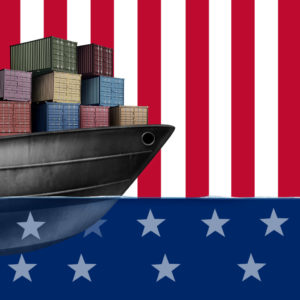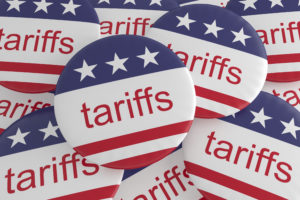News & Insights
The Suspension of Hong Kong’s Special Trade Status Poses New Export, Sanctions and Import Compliance Requirements on U.S. Companies
On July 14, 2020, President Trump issued Executive Order 13936 formally suspending Hong Kong’s special trade status under U.S. law. Several weeks earlier, on May 27, 2020, the Department of State certified to Congress that Hong Kong is no longer sufficiently autonomous from the People’s Republic of China (PRC) by virtue of, among other things, the PRC’s recent imposition of national security legislation that violates not only Hong Kong’s autonomy but the Sino-British Joint Declaration which is a UN-filed international treaty, as well. Executive Order 13936 states that Hong Kong “is no longer sufficiently autonomous to justify differential treatment in relation to the PRC,” and that the U.S. will suspend or eliminate the special treatment for Hong Kong with respect to U.S. immigration laws and regulations, the Arms Export Control Act, the Defense Production Act and the Export Control Reform Act. It also terminates Hong Kong’s status as a separate legal entity for country of origin and marking purposes under the U.S. customs laws and regulations. The Executive Order directed U.S. government agencies to amend their regulations and begin implementation by July 29, 2020.
In addition, on July 14, 2020, President Trump signed into law the Hong Kong Autonomy Act (“the Act”) (Public Law No. 116-149), which authorizes sanctions against foreign persons that materially contribute to the undermining of Hong Kong’s autonomy, as well as foreign financial institutions that engage in significant transaction with those foreign persons.
The suspension of Hong Kong’s special treatment under U.S. law will significantly impact imports and exports of goods and technologies from and to Hong Kong. In addition, the new sanctions will also require companies to assess their current activities and operations in Hong Kong and China, and to modify their business dealings as needed to ensure their compliance with the new requirements. The following provides a summary of these recent developments.
Hong Kong’s Special Treatment under U.S. Law
By way of background, the United States-Hong Kong Policy Act of 1992 (“the Act”) provided special treatment to Hong Kong for purposes of U.S. customs, export, sanctions, immigration, extradition and foreign investments laws and regulations. In essence, Hong Kong was treated as its own country, separate and independent from the PRC. The Act requires the Secretary of State to submit an annual report to Congress as to whether Hong Kong continues to remain sufficiently autonomous from the PRC, and certify whether Hong Kong continues to merit special treatment under U.S. law.
Immediate Impact of the Executive Order on U.S. Export Controls
As a result of Executive Order 13936, with respect to U.S. export compliance, companies doing business with Hong Kong should assume that their transactions are now subject to the same export, reexport and in-country transfer restrictions that apply to the PRC.
On June 30, 2020, the Commerce Department’s Bureau of Industry and Security (BIS) suspended license exceptions for exports and reexports to Hong Kong, as well as in-country transfers within Hong Kong, which are provided in 15 C.F.R. Part 740 of the Export Administration Regulations (EAR) if they provide differential treatment than those exceptions available to the PRC. (The EAR is supported by the Export Control Reform Act, which was specifically referenced in Executive Order 13936.) Accordingly, U.S. exporters are not permitted to use any EAR license exceptions for shipments to Hong Kong except where those shipments would also qualify for the license exception for mainland China. However, a 60-day savings clause was rolled out in which now licensable exports that were aboard a carrier on June 30, 2020, will be allowed to continue to Hong Kong under the previous license exceptions. In addition, with respect to deemed exports and deemed reexports involving Hong Kong persons that were authorized before June 30th, those transfers will continue to be authorized under the EAR until August 28, 2020. During the 60-day period, exporters are required to document that the Hong Kong recipients were hired and provided access to EAR-controlled source code and technology before June 30th.
Similarly, with respect to the International Traffic in Arms Regulations (ITAR), the State Department’s Directorate of Defense Trade Controls (DDTC) announced a licensing policy change for Hong Kong on July 15, 2020. (The ITAR is supported by the Arms Export Control Act (AECA), which was specifically referenced in Executive Order 13936.) The DDTC noted that the Executive Order requires that Hong Kong be treated as the PRC for purposes of the AECA and the ITAR with a specific carve-out to support Hong Kong persons residing outside of Hong Kong who were previously authorized to access defense articles (including technical data) that are controlled under the ITAR. The DDTC also stated that Hong Kong is now considered a proscribed country per 22 C.F.R. Section 126.1(d)(1) of the ITAR, and license applications for transfers of defense articles involving Hong Kong will be subject to a policy of denial. The DDTC also posted FAQs to its website noting that—
- DDTC will review on a case-by-case basis license applications to export defense services to Hong Kong persons who (a) are physically located outside of Hong Kong or the PRC and (b) were authorized to receive defense articles prior to July 14, 2020—exporters can also continue using available ITAR license exemptions consistent with Section 126.1(a); and,
- Current, valid, non-exhausted authorizations naming Hong Kong as a transfer territory are not affected by the Executive Order, and the DDTC will not take steps to revoke or rescind previously approved authorizations (i.e., licenses, agreements or General Correspondences) to export defense articles or services to Hong Kong.
The DDTC also stated that Hong Kong is now treated as the PRC. Therefore, the new restrictions on Hong Kong apply to all end-users in Hong Kong, not just to government entities.
Impact of the Executive Order and the Recently Enacted Hong Kong Autonomy Act on U.S. Economic Sanctions
Section 4 of Executive Order 13936 sanctions individuals and entities—
- Involved in the coercing, arresting, detaining or imprisoning of individuals under the authority of the PRC’s new national security legislation imposed on Hong Kong;
- Involved in developing, adopting or implementing the PRC’s new national security legislation;
- Involved in actions or policies that undermine democratic processes or institutions in Hong Kong, or that threaten the peace and security of Hong Kong;
- Involved in censorship or other activities that prohibit, limit or penalize the exercise of freedom of expression or assembly by citizens of Hong Kong;
- Involved in the extrajudicial rendition, arbitrary detention or torture of any person in Hong Kong or other gross human rights violations;
- Who are leaders or officials of an entity that engaged in the foregoing activities;
- That have materially assisted, sponsored or provided financial, material or technological support for, or gods or services to or in support of, any person sanctioned above;
- That are owned or controlled by, or that have acted on behalf of, any person sanctioned above; or,
- Who is a member of the board of directors or a senior executive officer of any person sanctioned above.
Executive Order 13936 did not make any immediate sanctions designations. OFAC has not yet added any individuals and entities to the Specially Designated Nationals List.
As noted above, President Trump also signed into law the Hong Kong Autonomy Act (HKAA). The HKAA authorizes sanctions against foreign persons that materially contribute to the undermining of Hong Kong’s autonomy and foreign financial institutions that engage in significant transactions with those foreign persons. The HKAA requires the Secretary of State, in consultation with the Secretary of the Treasury, to identify such foreign persons within 90 days following the legislation’s enactment and then at least annually going forward. Within 30 and 60 days following the submission of the Foreign Person Report, the Secretary of the Treasury must submit a report that identifies any foreign financial institutions that conducts a significant transaction involving the designated foreign persons.
There are two separate sets of sanctions that may be imposed by the President on the parties identified as foreign persons and foreign financial institutions in the State Department and Treasury Department reports. For example, identified foreign persons may be prohibited from dealing in property subject to U.S. jurisdiction in which they have an interest, and they may be denied visas and excluded from the United States. If the foreign persons are named in an additional report by the Department of State in the future, those sanctions will become mandatory. Identified foreign financial institutions may be subjected to 10 sanctions within one year of being designated in the Treasury Department’s report. The sanctions on foreign financial institutions include prohibitions on:
- Loans from US financial institutions;
- Foreign exchange transactions;
- Transfers of credit or payment subject to US jurisdiction;
- Transactions in property in which the institution has an interest;
- Exports, reexports and transfers to the foreign financial institutions;
- Dealings by US persons in debt or equity issued by the institutions;
- Entry into the United States by corporate officers of the foreign financial institution; etc.
The sanctions on foreign financial institutions may also be imposed against their principal executive officers. If the institutions remain on the Treasury Department’s Report for two years, all 10 sanctions must be imposed against them.
Impact of the Executive Order on Imports of Merchandise into the U.S. from Hong Kong
The Executive Order specifies that the suspension of special treatment for Hong Kong will apply to 19 U.S.C. Section 1304 of the Tariff Act of 1930, as amended, which covers the country of origin marking requirements that apply to goods that are imported into the United States. Section 1304 requires that all articles of foreign origin be marked so as to indicate to an ultimate purchaser in the United States the English name of the country of origin of the article. The intent of Section 1304 is to allow consumers in the United States to make an informed purchasing decision based on products’ countries of origin. Under the special treatment afforded to Hong Kong, Customs and Border Protection allowed goods that originated in Hong Kong to be marked “Made in Hong Kong,” rather than “Made in China.” Accordingly, Executive Order 13936 indicates that such goods must now be marked “Made in China.”
One issue that has been raised is whether the Executive Order will require U.S. importers to declare the PRC as the country of origin in the entry documentation filed for entries of merchandise from Hong Kong. Again, the only customs statute referenced in the Executive Order is Section 1304, which applies only to the country of origin marking of goods that are imported into the United States. Therefore, it is likely that CBP will instruct importers to mark goods imported from Hong Kong as “Made in China,” and declare in the customs entry documentation that products of Hong Kong under the established U.S. rules of origin (i.e., wholly obtained or produced in Hong Kong, substantially transformed in Hong Kong) are Hong Kong-origin (regardless of their markings).
Another common question that has arisen in light of Executive Order 13936 is whether the Section 301 tariffs assessed on certain Chinese-origin goods that are imported into the United States will now also apply to products imported from Hong Kong. Senior officials from Customs and Border Protection (CBP) have publicly stated that the Executive Order does not authorize the extension of the Section 301 tariffs on goods of Hong Kong origin. The Executive Order provides that, because Hong Kong is no longer sufficiently autonomous from the PRC, its special treatment is no longer warranted under the U.S. laws and regulations that are specifically referenced and identified in the order. If the Section 301 tariffs were intended to apply to certain goods imported from Hong Kong, the Executive Order would have clearly identified Section 301 of the Trade Act of 1974 in the list of affected statutes. Instead, the Executive Order only references Section 1304 which, as noted above, applies to the marking requirements applicable to goods that are imported into the United States.
Multinational companies operating or doing business in Hong Kong and China should assess their activities to determine the impact of Executive Order 13936 and the Hong Kong Autonomy Act on their operations and relationships. Miller Proctor Law will continue to follow this situation closely.
News & Insights

U.S. Suspends Export Privileges of Chinese Tech Giant ZTE
On April 16th, the U.S. Commerce Department’s Bureau of Industry and Security (“BIS”) imposed a denial order against ZTE Corporation and ZTE Kangxun Telecommunications, Ltd. (“ZTE Kangxun”), located in Shenzhen, China, for making false statements in violation of the companies’

U.S. Customs and Border Protection Provides Guidance on Applicability of Section 301 Tariffs to Imported Retail Sets
In response to questions on Section 301 posed by the National Customs Broker and Forwarder Association of America (“NCBFAA”), U.S. Customs and Border Protection (“CBP”) recently stated that— The Section 301 tariffs on Chinese-origin goods will not apply to articles


